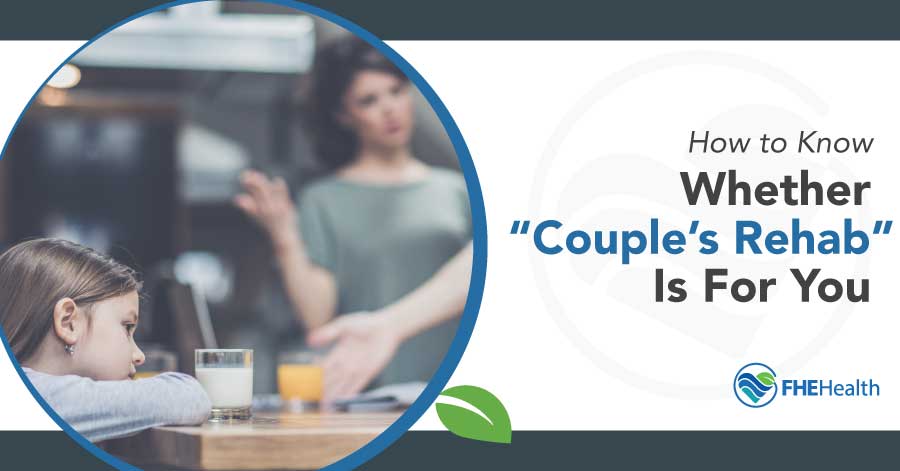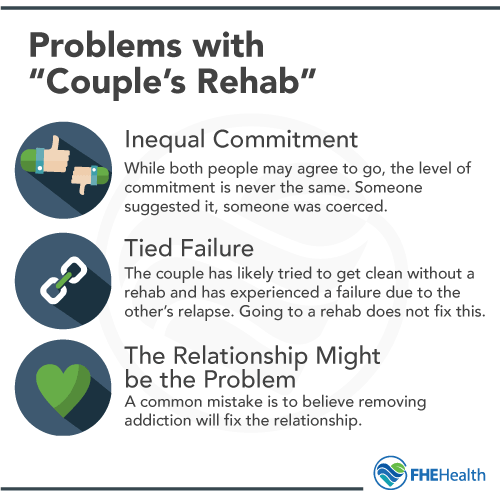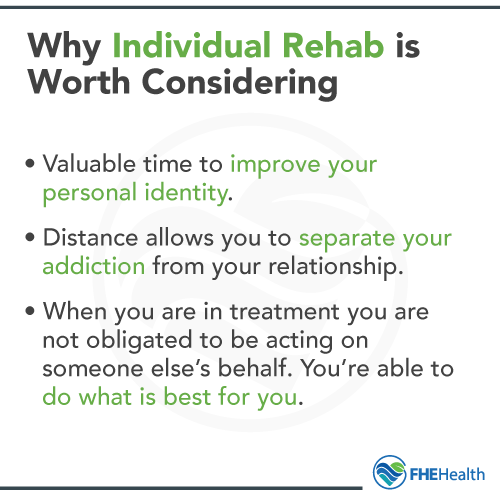
Couples Struggling with Addiction
When you enter a relationship with someone, you often start to engage in hobbies and activities that interest them and vice versa. Sharing parts of your life with each other is a natural part of getting to know one another and becoming closer. If one person is abusing alcohol or drugs at the start of the relationship, it’s not uncommon for the other person to be pulled into the cycle of addiction as well. Couples may also meet after both entering the cycle of addiction — or meet because of their drug or alcohol use — and continue to use together.
And you might think that couples who use together may have more success if they get clean together. After all, if addiction is closely tied to your relationship, shouldn’t the relationship be part of your recovery? But can two addicts get clean together?
While everyone’s recovery journey is different, the answer to these questions is often no. There are simply too many problems involved in a couple-centric recovery model, and tying your sobriety to someone else’s may sink both ships. This is true for couples whether they are dating or married.
Can Couples Go to Rehab Together?
Couple’s drug rehabs do exist, and there are various options for integrating couple’s therapy into your individual rehab. But if you’re asking can two addicts get clean together with specific intent to enter and work through a rehab program as one unit (made of two people), you may experience numerous problems with recovery. FHE Health Sober Skills Director Art Jacob talks candidly about the risks of entering into a relationship with someone you meet in rehab. But many of the issues he brings up can also derail couples who enter rehab together.
 The truth is that recovery is ultimately an individual concept. It’s your body and mind — your addiction — that must be treated, and while support is good, another person’s journey to recovery doesn’t necessarily help with yours. Your relationship may very well need rehabilitation, but you need to start with yourself before you start fixing your relationships.
The truth is that recovery is ultimately an individual concept. It’s your body and mind — your addiction — that must be treated, and while support is good, another person’s journey to recovery doesn’t necessarily help with yours. Your relationship may very well need rehabilitation, but you need to start with yourself before you start fixing your relationships. Choosing individual rehab, even if you’re both facing addiction, provides for a number of benefits.
Choosing individual rehab, even if you’re both facing addiction, provides for a number of benefits.





